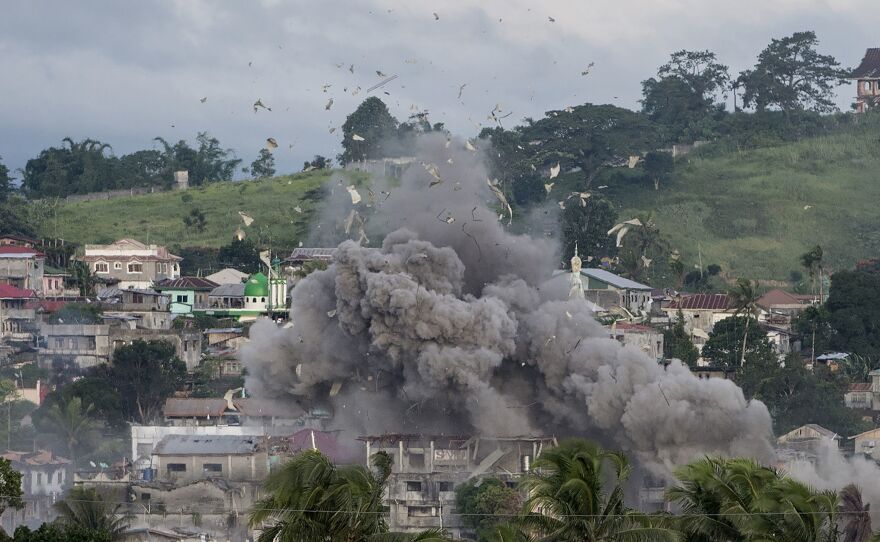The Philippine military suffered its worst day yet in its fight to reclaim Marawi from ISIS-linked militants, losing 13 marines during heavy door-to-door fighting on Friday. Yet the casualties — which bring the number of military deaths there to 58 — mark just a "temporary setback," a Philippine military spokesman said.
It "has not diminished our resolve a bit," Col. Edgard Arevalo said, according to The Associated Press. "It instead primed up our determination to continue our prudent advances to neutralize the enemy, save the innocent lives trapped in the fight, and set the conditions for the rehabilitation and reconstruction of Marawi."
The news comes as the U.S. has joined the fight in Marawi, offering the Philippine military assistance "pertaining to exercises, training, technical assistance," another Philippine military spokesman said earlier this week. Lt. Col. Jo-Ar Herrera added that the U.S. special forces there are not directly engaged in the fighting.
The U.S. Embassy in the Philippines confirmed the move in a statement released to several media outlets.
"At the request of the government of the Philippines, US special operations forces are assisting the (Armed Forces of the Philippines) with ongoing operations in Marawi," the embassy said, according to the Philippine news service Rappler. The U.S. will "continue to work with the Philippines to address shared threats to the peace and security of our countries, including on counterterrorism issues."
The AP confirms seeing a U.S. Navy surveillance aircraft high in the skies above Marawi on Friday, noting it "flew above rocket-firing Philippine helicopters that struck militant positions, causing plumes of smoke to billow skyward."
Reuters notes that at least 200 militants — led by the Maute and Abu Sayyaf groups, both of which have pledged allegiance to ISIS — remain holed up in the city with about 500 to 1,000 trapped civilians. The militants have been using some of these civilians as human shields, Herrera said.
"The key component we saw in the firefight with the marines [on Friday] was how the terrorists are using mosques," he said, as Rappler reports. "The enemies took defensive positions there. They also used civilians as human shield."
Militants have controlled significant chunks of the city since May 23, when a raid to capture Isnilon Hapilon, Abu Sayyaf's leader, devolved into protracted violence. The Two-Way has reported that an alliance of extremist groups have held out against the siege using supplies stored in civilian sites such as mosques and schools, as well as a network of underground tunnels.
Yet the militants appear to have suffered a major setback recently themselves.
Herrera says the Philippine military is "still awaiting confirmation" that the Maute brothers, two leaders of the militant occupation, were killed in the fighting this week — but, as Reuters reports, Hererra says "there are strong indications" they were.
Copyright 2017 NPR. To see more, visit http://www.npr.org/.






